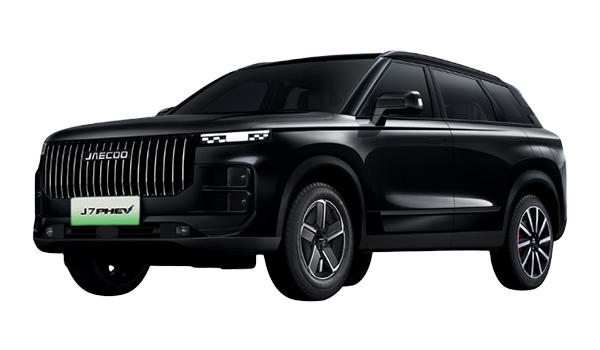In recent years, a seismic shift has taken place on South African roads. Once dominated by traditional European and Asian giants, the automotive landscape is now seeing a dramatic rise in the presence and popularity of Chinese brands. This isn’t just a fleeting trend; it’s a profound market transformation driven by a smart combination of value, technology, and aggressive expansion.
The days of viewing Chinese-manufactured cars as merely “budget alternatives” are long gone. Brands like Chery, Haval, GWM, Omoda, and Jaecoo have redefined the game, offering a compelling blend of features and affordability that directly appeals to the South African consumer facing economic pressure.
The Value Proposition: Quality Meets Affordability
The primary catalyst for the growth of Chinese automakers is their exceptional value proposition. In a climate where the cost of living and vehicle ownership continues to rise, these brands have effectively lowered the entry point for a feature-rich, modern vehicle.
- Affordable Luxury: Chinese models, particularly in the highly competitive SUV and crossover segments, often come standard with technology and comfort features—such as digital cockpits, panoramic sunroofs, advanced driver assistance systems (ADAS), and touchscreen infotainment—that are often expensive optional extras on their established rivals.
- Pricing Power: This feature-packed approach is delivered at a price point that is often 15% to 25% lower than comparable models from legacy manufacturers. The Chery Tiggo 4 Pro and Haval Jolion, for example, have become massive sellers by offering a level of sophistication previously unattainable in their price brackets.
- Boosting Confidence: Furthermore, many of these brands are offering industry-leading warranties, such as Chery’s 10-year/1-million-kilometre engine warranty, which acts as a powerful assurance of quality and reliability, addressing historical consumer skepticism. For South African drivers who need their vehicles to withstand diverse driving conditions, this long-term peace of mind is invaluable.
A Shift in Market Share and Consumer Trust
The rapid ascent of Chinese brands is clear in the sales figures. The collective market share of Chinese light vehicle brands in South Africa has surged from a mere 2% a few years ago to nearly 10% of the overall new light vehicle sales market today.
This growth is accelerating and is having a ripple effect, even in the pre-owned space. Brands like Haval and Chery are now regularly featuring in the top-selling charts, displacing long-established competitors. This success has cemented their presence, moving them from niche players to mainstream contenders in the South African automotive industry.
Practical Car Care Tip: To protect your investment in these new-age, high-tech vehicles, always adhere to the manufacturer’s recommended service intervals. Modern engine oils are critical for the efficiency and longevity of turbocharged engines often found in these models. For the latest insights on the local car market and industry trends, visit imotonews.co.za.
The Impact on the Used Car Market
The influx of affordable new Chinese cars is having a measurable impact on the second-hand car market. With highly specced, new vehicles becoming more accessible, this puts price pressure on older, used models from competing brands.
- Value Retention: Initial concerns about resale value are slowly diminishing. As more drivers experience the quality and reliability of these new-generation Chinese models, demand for them in the used market is rising.
- Buyer Choice: For budget-conscious South Africans, a low-mileage, used Chery Tiggo 7 Pro or a Haval Jolion offers a fantastic package of technology and comfort that makes them highly attractive against older, less-featured competitors. To find second-hand cars suitable for these conditions, check out auto24.co.za, where popular models like the used Haval H6 and Chery Tiggo 8 Pro are becoming increasingly common listings.
The Future is Electric: New Energy Vehicles (NEVs)
Chinese automakers are also leading South Africa’s tentative steps into the New Energy Vehicle (NEV) space, which includes Electric Vehicles (EVs) and Plug-in Hybrid Electric Vehicles (PHEVs). Globally, China is a powerhouse in EV production, and they are leveraging this advantage locally.
- Pioneering Affordable EVs: Brands like BYD, GWM (with the Ora), and Chery (with Omoda) are introducing affordable EVs and hybrids. This is critical for driving wider adoption in a market still dealing with range anxiety and high infrastructure costs.
- Infrastructure Investment: Chinese companies are not just importing cars; they are actively discussing and, in some cases, investing in local charging infrastructure, which is a key barrier to EV adoption.
For drivers looking to explore sustainable mobility, EV24.africa offers import options for electric cars, expanding choices in the rapidly evolving NEV segment in South Africa.
Beyond Sales: Local Investment and Manufacturing
The long-term commitment of Chinese brands is further evidenced by their move towards local assembly and manufacturing.
BAIC’s assembly plant in Gqeberha, for example, is a significant industrial investment that signals a long-term strategy to be a ‘truly local brand.’ This shift from mere importation to local value addition—including skills development and potentially component sourcing—is crucial for the sustainability of the South African automotive industry and job creation.
- Encouraging Growth: As these companies localise production, they strengthen their supply chains and demonstrate faith in the local economy. Read more here about the potential for job creation in the manufacturing sector.
The Road Ahead
The rise of Chinese car brands is not just changing what South Africans drive, but how the entire market operates. They are setting new benchmarks for value, technology, and warranty confidence that traditional players are now forced to meet. This competitive pressure ultimately benefits the consumer, driving innovation and bringing down the effective cost of modern car ownership. As more South Africans choose a Haval, Chery, or Omoda, the revolution is solidifying, making the South African automotive landscape more diverse, competitive, and exciting than ever before.





